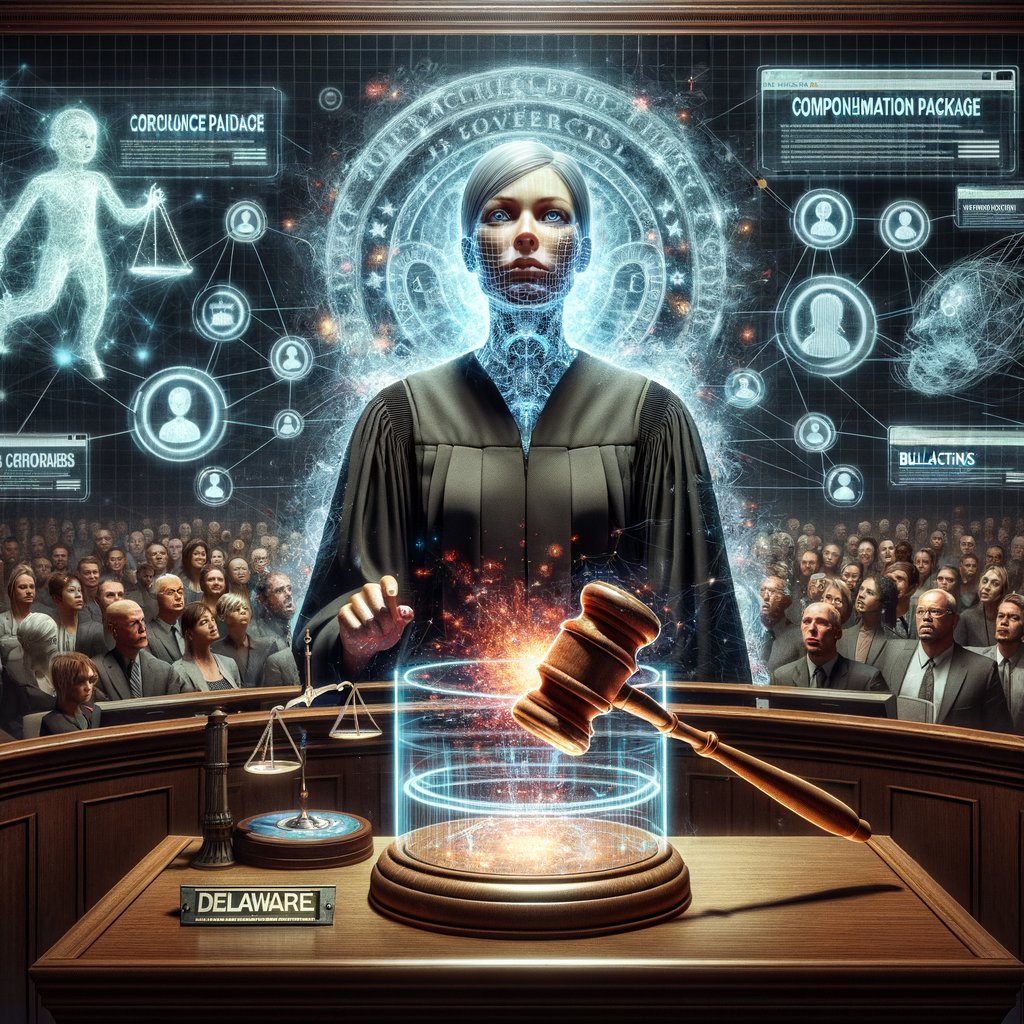Image created by AI
Delaware Judge Faces Fury After Nullifying Musk's Tesla Compensation Again
Delaware's Chancery Court, under Chief Judge Kathaleen St. J. McCormick, remains in the eye of a social media storm following her recent decision to block Elon Musk's groundbreaking compensation package from Tesla for the second time. The ruling, which has stirred considerable controversy and invoked the ire of Musk and his fervent followers, has renewed discussions on the significant pressures judges face when tackling cases involving influential figures.
The package in question, originally valued at $2.6 billion and later ballooning to an estimated $101.5 billion, was intended as a reward for Musk contingent upon achieving specific performance milestones. McCormick’s cancellation of the package has sparked a whirlwind of reactions, with figures like Tesla supporter Cathie Wood and numerous social media users condemning the decision.
Elon Musk, who often uses his substantial social media platform to express dissatisfaction, didn’t hesitate to label the ruling as “absolute corruption,” further highlighting his discontent with the judicial outcomes in Delaware. This sentiment was echoed by numerous X (formerly Twitter) users, some even suggesting extreme retaliations against the judge.
Despite these challenges, legal experts commend McCormick for her perseverance and adherence to legal standards. The backlash has not swayed her dedication to upholding Delaware law, which mandates impartiality in corporate governance — an aspect the court found lacking in Tesla’s board, purportedly due to close ties to Musk.
Judge McCormick’s rulings, particularly in Musk-related litigation, underscore the complexity of legal battles involving high-profile business leaders and their impact on corporate jurisprudence. While Musk has hinted at a potential relocation of his companies to Texas, which offers more relaxed regulations, the ongoing legal saga has broader implications for corporate America, especially considering Delaware’s status as a corporate hub.
Legal scholars like Ann Lipton from Tulane University emphasize that the ruling reinforces the principle that even high-powered executives like Musk are subject to the same legal scrutiny as any other corporate official. This case not only challenges the corporate governance of one of the most high-profile companies in America but also tests the robustness of judicial integrity in the face of public and personal pressures.
As the legal proceedings continue, with Tesla vowing to appeal, the situation remains a pivotal learning curve for corporate America about governance, accountability, and the intersection of law and power. This ongoing legal drama, enveloping one of the most significant financial figures of our time, illustrates the intricate balance of judicial responsibility and corporate influence in modern governance.










